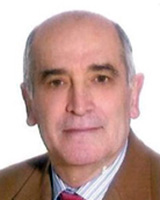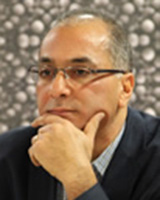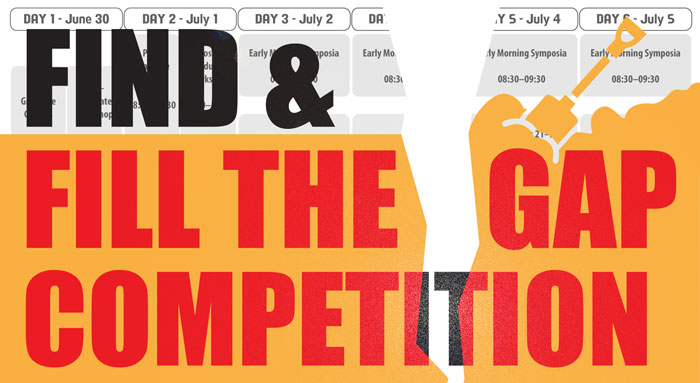
Happy 5oth Anniversary to Heart Transplantation!
 We have compiled some interesting online articles regarding the first successful Heart Transplant:
We have compiled some interesting online articles regarding the first successful Heart Transplant:
Happy Anniversary, Heart Transplant
NY Times - Fifty years ago this Sunday, the first adult human heart transplant was performed in Cape Town. It was an epoch-making advance in science — and also, perhaps, in human culture. Read more
The surgeon who dared
DailyMail - 50 years ago this week Dr Christiaan Barnard defied doubters to perform the first ever heart transplant and lead a medical revolution as a fellow medic reveals his rags to riches tale. Read more
Modern heart transplants owe their origins to a fungus found in the dirt
Quartz - Fifty years ago today, Denise Darvall, a South African woman in her mid-20s, died in a car crash. Her death was tragic, but had a silver lining: it catalyzed one of the most important medical breakthroughs in modern history. Read more
Thursday, December 14, 2017
10am EST (4pm Madrid time)
Hepatitis C and Renal Transplantation in the Era of New Antiviral Agent
 |
Speaker: Professor José Maria Morales, MD, PhD Professor of Medicine, Past-Medical Director Renal Transplant Program Hospital 12 de Octubre, Madrid, Spain |
Click here for more information and to register
Wednesday, December 6, 2017
10am EST (8am Edmonton)
Death Declaration by an Intensive Care Doctor
 |
Speaker: Professor Sam Shemie, MD Division of Critical Care Medicine, Montreal Children's Hospital, McGill University Health Centre & Research Institute Professor of Pediatrics, McGill University Honourary Staff Physician, Department of Critical Care Medicine, Hospital for Sick Children, University of Toronto Medical Advisor, Deceased Organ Donation, Canadian Blood Services |
Click here for more information and to register
TTS 2018 Abstract Deadline Extension
TTS 2018 Find&FIll the Gap Contest
We want you to contribute to the Congress by finding a gap in the congress program and submitting your own proposal to fill it. Submissions will be reviewed by the Program Committee and the top proposals will be voted on by the community. Winners will be part of the official program and be hosted in the TTS Innovation Studio in the Exhibit Hall.
TTS 2018 Award Deadlines
TTS Young Investigator Awards - December 8, 2017
The Young Investigator Awards are funded by the Roche Organ Transplantation Research Foundation (ROTRF)
International Transplantation Science Mentee-Mentor Awards - December 8, 2017
TTS and partnering affiliated societies are offering many awards for TTS 2018. All awards require abstract submission.IN THE NEWS
Cardiac Muscle Patch Made From Stem Cells Can Repair Damaged Heart
November 29 - MedicalResearch.com Interview with: Nenad Bursac PhD, Professor of Biomedical Engineering, Associate Professor of Medicine, Duke University, Durham, NC
Targeted Drug Delivery Via Nanoparticles Could Help Repair Transplant Organs
November 29 - Scientists have designed targeted nanoparticles to aid the therapeutic delivery of drugs directly to organs. This new technique, ex vivo normothermic machine perfusion (NMP) could increase the number of viable organs available for transplantation. More specifically, it enables delivery of drugs to vascular endothelial cells (ECs) – the first point of contact with a transplant recipient’s immune system. These cells are particularly vulnerable to ischemia-reperfusion injury and damage from antidonor antibodies.
Stem cell-derived intestine model mimics innate immune responses
Novermber 29 - A stem cell-derived in vitro model displays key small intestine characteristics including innate immune responses, according to a study published November 29, 2017 in the open-access journal PLOS ONE by Ying Chen and David Kaplan from Tufts University, US, and colleagues.
New technique to model transplantation of the human liver
Novermber 29 - A team of scientists, physicians, and engineers from the Center for Engineering in Medicine (CEM) and the Transplant Center of the Massachusetts General Hospital (MGH) at the Harvard Medical School in Boston, MA reported the development of a new technology that enables researchers to better study liver transplantation in a pre-clinical setting.
Targeted Drug Delivery Via Nanoparticles Could Help Repair Transplant Organs
November 29 - Scientists have designed targeted nanoparticles to aid the therapeutic delivery of drugs directly to organs. This new technique, ex vivo normothermic machine perfusion (NMP) could increase the number of viable organs available for transplantation. More specifically, it enables delivery of drugs to vascular endothelial cells (ECs) – the first point of contact with a transplant recipient’s immune system. These cells are particularly vulnerable to ischemia-reperfusion injury and damage from antidonor antibodies.
NIH Director's Blog - Creative Minds: Taking Aim at Adverse Drug Reactions
As a practicing dermatologist, Sherrie Divito sees lots of patients each week at Brigham and Women’s Hospital, Boston. She also sees lots of research opportunities. One that grabbed her attention is graft-versus-host disease (GvHD), which can arise after a bone-marrow transplant for leukemia, lymphoma, or various other diseases. What happens is immune cells in the donated marrow recognize a transplant patient’s body as “foreign” and launch an attack. Skin is often attacked first, producing a severe rash that is a harbinger of complications to come in other parts of the body.
Study identifies genes involved in tolerance following kidney transplantation
A new study provides insights on the mechanisms that allow an individual's immune system to accept, rather than reject, a donor kidney. The findings, which appear in an upcoming issue of the Journal of the American Society of Nephrology (JASN), point to markers that could be monitored to asses and track the health of organs following transplantation.
Interrupted reprogramming converts adult cells into high yields of progenitor-like cells
A modified version of iPS methodology, called interrupted reprogramming, allows for a highly controlled, safer, and more cost-effective strategy for generating progenitor-like cells from adult cells. Researchers converted adult mouse respiratory tract cells called Club cells into large, pure populations of induced progenitor-like cells, which retained a residual memory of their parental cell lineage. Moreover, these cells showed potential as a cell replacement therapy in mice with cystic fibrosis.
Woman With Transplanted Uterus Gives Birth, the First in the U.S.
NY Times - For the first time in the United States, a woman who had a uterus transplant has given birth. The mother, who was born without a uterus, received the transplant from a living donor last year at Baylor University Medical Center in Dallas, and had a baby boy there last month, the hospital said on Friday.
Women in Transplantation News
Dr. Lori West, a new Fellow of the Royal Society of Canada
Dr. Lori West, Director of the CNTRP, has recently been elected a fellow of the Royal Society of Canada (RSC), the highest academic accolade for scholars, artists and scientists in Canada. Dr. West is one of six faculty members at the University of Alberta elected to the Royal Society of Canada this year, and one of 89 new Fellows elected in Canada’s 150th Anniversary year. Dr. West’s induction into the RSC recognizes the significant impact her research has on the international stage, beginning when Dr. West demonstrated that ABO incompatible heart transplantation could be carried out safely in young babies, without risk of hyper-acute rejection. Dr. West's leadership to unite the hematopoietic cell transplant, solid organ transplant, and donation/critical care research communities, together with patients and families, into a comprehensive national research network demonstrates her profound impact on the field and commitment to improving outcomes for transplant recipients. The RSC brings together the top Canadian scholars, humanists, scientists and artists to promote learning and research in the arts, the humanities and the sciences. The RSC is Canada’s National Academy and exists to promote Canadian research and scholarly accomplishment in both official languages, to recognize academic and artistic excellence, and to advise governments, non-governmental organizations and Canadians on matters of public interest.
Elaine Reed, Recipient of ASHI The Paul Terasaki Clinical Science Award
Congratulations to Dr. Elaine Reed who is the recipient of The Paul I. Terasaki Clinical Science Award. The Paul I. Terasaki Clinical Science Award was established in 2003 to honor an individual, group, or institution in recognition of significant accomplishments and/or contributions to the fields of clinical transplantation, histocompatibility, and immunogenetics. This award was made possible by a grant from the Paul I. Terasaki Foundation.
Deadline Reminders
Young Investigator and International Mentee-Mentor Awards - December 8, 2017
TTS and partnering affiliated societies are offering many awards for TTS 2018. All awards require abstract submission, please visit our website for more details.
TTS Officer / Council Nominations - January 31, 2018
TTS is seeking nominations for three Officer positions that will be vacated in 2018: President-Elect, Vice President and Treasurer. In addition, five of the 12 Councilors-at-large will be changing.
Click here for to nominate someone today! (Requires login)
Medawar Prize Nominations - January 31, 2018
The Medawar Prize, named after Society co-founder Sir Peter Medawar, is recognized as the world's highest dedicated award for the most outstanding contributions in the field of transplantation.
Click here for to nominate someone today!
Recognition Award Nominations - January 31, 2018
The Transplantation Society bestows Honours and Awards to recognize individuals contributing to the field of transplantation through outstanding achievement (for basic scientists, clinicians and in developing countries), and mentorship and training. All members of TTS in good standing are eligible to make nominations and to be nominated for these Awards.
Click here for to nominate someone today!
Women in Transplantation Awards - January 31, 2018
The Women in Transplantation (WIT) Steering Committee have created the Woman Leader in Transplantation Award to recognize a woman who has helped further the field of transplantation through research, policies, leadership, initiatives or other regarded contributions. Also created by the WIT Steering Committee, the Unsung Hero Award will be presented to one woman who has had an extraordinary impact in transplantation through community service, volunteering, mentorship or other community based activity.
Contact
Address
The Transplantation Society
International Headquarters
740 Notre-Dame Ouest
Suite 1245
Montréal, QC, H3C 3X6
Canada
Используйте Вавада казино для игры с бонусом — активируйте промокод и начните выигрывать уже сегодня!






